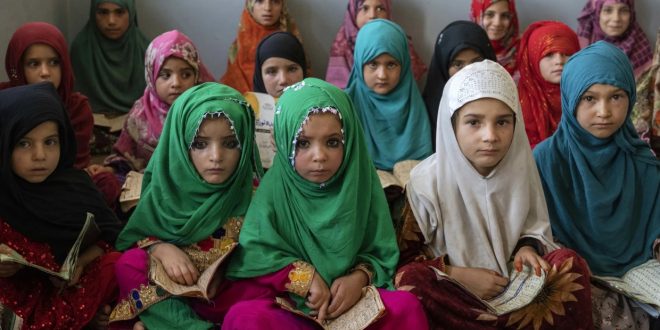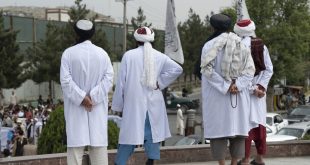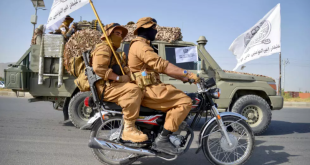AT
For most teenage girls in Afghanistan, it’s been a year since they set foot in a classroom. With no sign the ruling Taliban will allow them back to school, some are trying to find ways to keep education from stalling for a generation of young women.
House schools became common in Kabul, and dozens gathered for classes in informal schools set in homes.
These underground schools are in operation since the Taliban took over the country a year ago and banned girls from continuing their education past the sixth grade. While the Taliban have permitted women to continue attending universities, this exception will become irrelevant when there are no more girls graduating from high schools.
The relief agency Save the Children interviewed nearly 1,700 boys and girls between the ages of 9 and 17 in seven provinces to assess the impact of the education restrictions.
The survey, conducted in May and June and released Wednesday, found that more than 45% of girls are not going to school, compared with 20% of boys.
Nearly the entire population of Afghanistan was thrown into poverty and millions were left unable to feed their families when the world cut off financing in response to the Taliban takeover.
The international community is demanding that the Taliban open schools for all girls, and the U.S. and European Union have created plans to pay salaries directly to Afghanistan’s teachers, keeping the sector going without putting the funds through the Taliban.
With no sign the ruling Taliban will allow them back to school, some girls and parents are trying to find ways to keep education from stalling for a generation of young women.
But the question of girls’ education appears to have been tangled in behind-the-scenes differences among the Taliban. Some in the movement support returning girls to school — whether because they see no religious objection to it or because they want to improve ties with the world. Others, especially rural, tribal elders who make up the backbone of the movement, staunchly oppose it.
During their first time ruling Afghanistan in the 1990s, the Taliban imposed much stricter restrictions on women, banning school for all girls, barring women from work and requiring them to wear an all-encompassing burka if they went outside.
Taliban reassured Afghans when they seized control again last year that they would not return to the heavy hand of the past.
Officials have publicly insisted that they will allow teen girls back into school, but say time is needed to set up logistics for strict gender segregation to ensure an “Islamic framework.”
Hopes were raised in March: Just before the new school year was to begin, the Taliban Education Ministry proclaimed everyone would be allowed back. But on March 23, the day of the reopening, the decision was suddenly reversed, surprising even ministry officials. It appeared that at the last minute, the Taliban’s supreme leader, Mullah Haibatullah Akhundzada, bowed to the opposition.
Even if the young woman gets a university degree, “what is the benefit?” said Mohammad Shah Qaderi, a 58-year-old retired government employee to Associated Press.
“She won’t have a job. The Taliban won’t allow her to work,” he said.
Qaderi said he has always wanted his children to get a higher education. Now that may be impossible, so he’s thinking of leaving Afghanistan for the first time after riding out years of war.
“I can’t see them growing in front of my eyes with no education; it is just not acceptable to me,” he said.
 Afghanistan Times
Afghanistan Times




